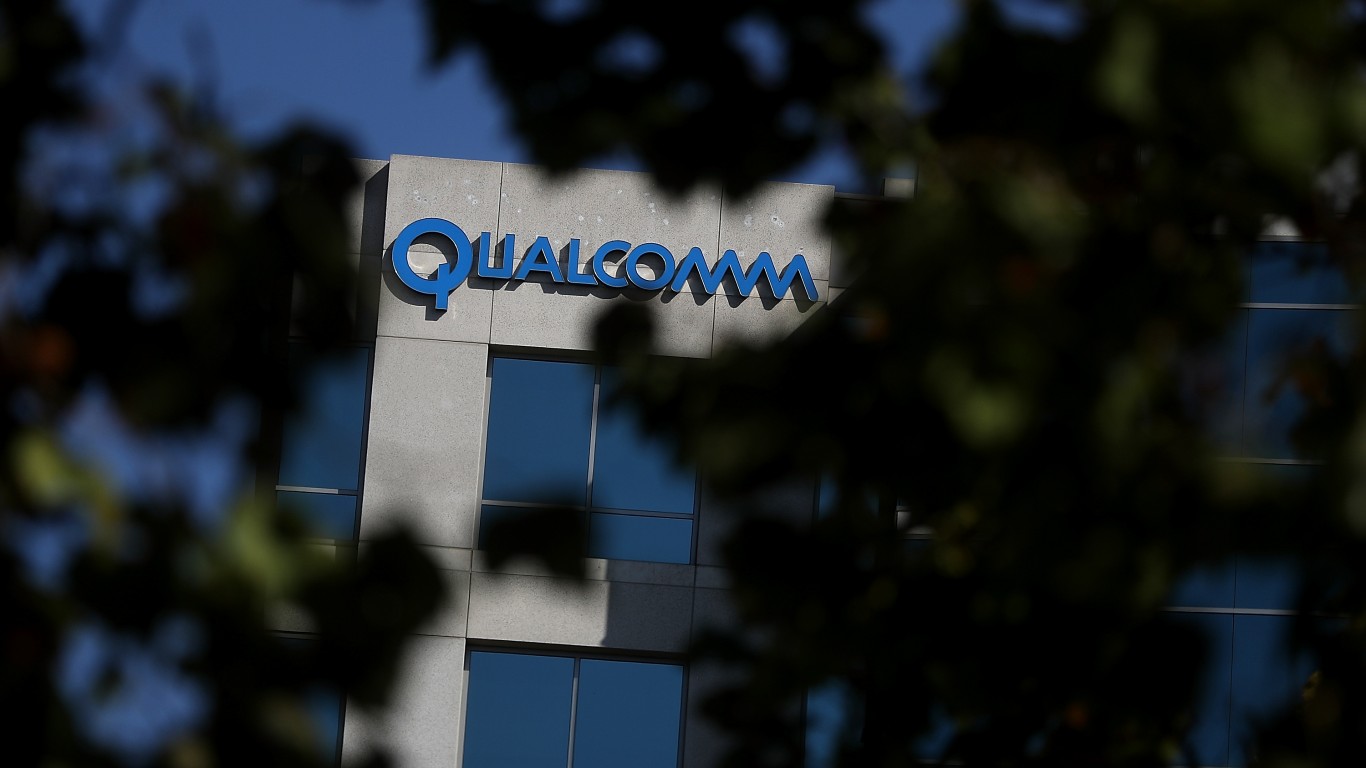Technology
Qualcomm's Not So Good, Very Bad Day Could Get a Lot Worse If Apple Demands a Do-Over

Published:
Last Updated:

Last month, Qualcomm Inc. (NASDAQ: QCOM) and Apple Inc. (NASDAQ: AAPL) announced a settlement in the long-running dispute between the two companies over Qualcomm’s licensing fees for its modem chips. The settlement would have been worth between $4.5 billion and $4.7 billion to Qualcomm.
Tuesday’s ruling by Judge Lucy Koh in U.S. District Court may provide Apple an opportunity to avoid that cash penalty. In her ruling on a case brought against Qualcomm in 2017 by the U.S. Federal Trade Commission (FTC), Judge Koh ruled that the company had illegally suppressed competition in the cell phone chip market and used its market dominance to charge excessive licensing fees for its technology.
Qualcomm must stop threatening to cut off chip supplies to customers that refuse to pay the company’s licensing fee even when the customer uses a chipset from another supplier. In other words, once a customer used a Qualcomm chip the customer was locked into an agreement to continue to pay Qualcomm a licensing fee forever.
Judge Koh ruled that Qualcomm must reach or revise agreements with existing customers without using the same anti-competitive practices. The company also must license its patents to rivals at fair, reasonable and non-discriminatory (known in the industry as FRAND) prices.
In January, short seller Kerrisdale Capital Management predicted that Qualcomm would lose this battle with the FTC. According to Kerrisdale, under Qualcomm’s existing pricing the company sells its chips for a fixed amount, say $20, and charges phonemakers a license fee that could be as high an additional $20, a royalty payment that Apple once called “extortion-level.”
The judge’s ruling is a big problem for the company’s revenue and profit streams. Assume that Intel also sells a modem chip for $20 plus a modest FRAND fee of $1.50 payable to Qualcomm. Under patent law, Qualcomm could no longer charge the additional $20 smartphone license fee. Qualcomm’s price for the chip would have to drop from $40 to no more than $21.50 to be competitive. That’s a serious problem because technology licensing revenues represent about a third of the company’s total.
Qualcomm’s settlement with Apple was a calculation by Apple that it risked not having modem chips with 5G capability available unless it got them from Qualcomm. No other company has been able to manufacture one, and Apple couldn’t afford to be further behind Samsung (in a 5G-marketing sense) than the Cupertino giant already finds itself.
While we don’t know for sure what kind of new agreement the two companies came to, Apple now has some pretty firm ground for renegotiating the settlement if it includes a royalty (FRAND) payment of more than a nominal amount. That $4.5 billion that Qualcomm was expecting from Apple may just have flown out the window.
Qualcomm has said that it will seek an immediate stay of Judge Koh’s ruling and pursue an expedited appeal in San Francisco’s Ninth Circuit Court of Appeals. The company’s general counsel said the company disagrees with Koh’s conclusions, “her interpretation of the facts and her application of the law.”
Qualcomm stock traded down more than 10% in the noon hour Wednesday, at $69.50 in a 52-week range of $49.10 to $90.34. The 12-month consensus price target on the stock is $96.59, a target that is certain to be lowered in the next few days.
Qualcomm and Apple are both considered to be among the world’s most innovative companies, and they each have one of the highest paid chief executives.
Thank you for reading! Have some feedback for us?
Contact the 24/7 Wall St. editorial team.